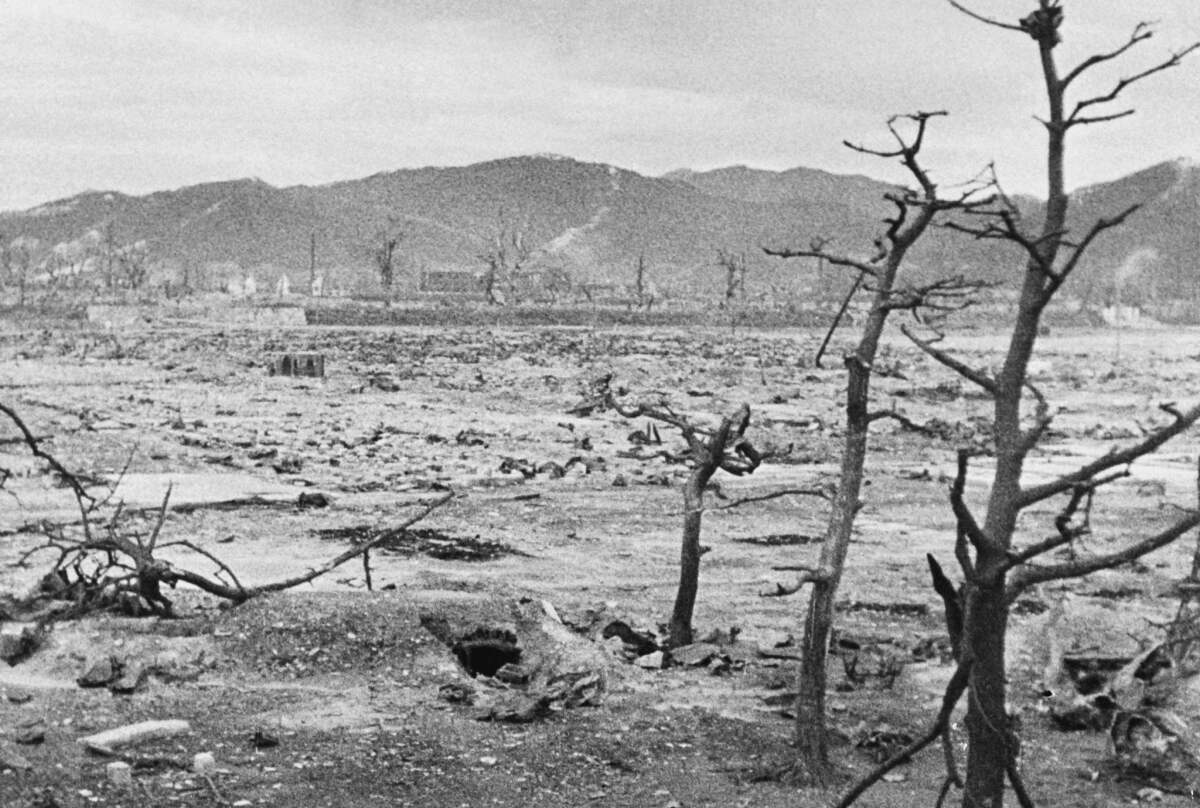Opinion: Nuking Japan was immoral and unnecessary

Good morning. I’m Paul Thornton, and it is Saturday, Aug. 8, 2020. Let’s take a look back at the week in Opinion.
It’s a question that generates plenty of debate but not much moral clarity: Was it OK for the United States to have detonated atomic bombs over two Japanese cities 75 years ago? With the benefit of hindsight — knowing it would set off an arms race and uncontainable nuclear proliferation — even in the most practical sense the answer is no. But remove the decades of hindsight, and you have a debate over whether hundreds of thousands of Americans and even more Japanese would have died in an invasion absent the nuclear exclamation that ended World War II. (Several readers argue something similar to that point in letters to the editor today.)
To me, the debate obscures an absolute moral truth: It’s never acceptable to terrorize and kill masses of civilians. We have soldiers for fighting wars. Inflicting pain and death on hundreds of thousands of peaceful citizens to save the lives of even our own troops is criminal, period.
A cure for the common opinion
Get thought-provoking perspectives with our weekly newsletter.
You may occasionally receive promotional content from the Los Angeles Times.
But must we think only in moral terms to condemn the bombings of Hiroshima and Nagasaki? Perhaps not, as historians Gar Alperovitz and Martin J. Sherwin argue in their L.A. Times op-ed article this week. They cite an abundance of historical evidence to show that from even a strategic standpoint, the decision to detonate nuclear weapons over two Japanese cities didn’t serve the purpose of hastening the war’s end. That’s even worse to think about when, as columnist Nicholas Goldberg writes, the world still lives in the horrifying shadow of what was probably an unnecessary show of force 75 years ago.
Happy Saturday.
President Trump lies a lot, and this is why: He moves through each day as its own episode in time, writes psychology professor Dan P. McAdams, making reality and even past lies irrelevant. Most humans develop a sense of themselves based on a narrative strung out over time, but not Trump: Instead, the “episodic man” is so immersed in this particular moment, so invested in winning this particular battle, that whatever came before or will come in the future is immaterial. “For most people, and every other president in the history of the United States, an episodic life would be unsustainable in the long run,” McAdams writes. “But for Trump, it has always been a winning life strategy.” L.A. Times
It’s almost the middle of August, and we’re still waiting on Joe Biden. But really, that’s no big deal, says the L.A. Times Editorial Board, because all this handicapping and speculation over the veepstakes are more media obsession than political strategy. Competence, especially with a 77-year-old presidential candidate, is especially important, and given the wide field of capable women from which Biden will make his selection, this reality-TV-like selection process will certainly have a happy ending, writes columnist Virginia Heffernan.
He caved to car ownership. In Los Angeles that may sound more like basic integration with society than a moral failing, but Sewell Chan, The Times’ editorial page editor, writes that he set up his life around forgoing a car. Still, the pandemic has made bus commuting less than ideal, and Chan says he appreciates his newfound freedom to shop more conveniently for groceries and explore the region’s far-flung natural wonders. But this, hopefully, is only temporary: “I’m already looking forward to the day when I don’t have to pay Geico premiums and can once again wield my Metro TAP card without fear.” L.A. Times
Enjoying this newsletter? Consider subscribing to the Los Angeles Times
Your support helps us deliver the news that matters most. Become a subscriber.
Don’t credit a statewide mask order with slowing COVID-19’s spread in California. Deep in their piece on the inadequacy of the various American lockdowns back in spring, Michael T. Osterholm and Neel Kashkari note that coronavirus case counts skyrocketed in California — after Gov. Gavin Newsom issued the statewide mask mandate in June. They call for a solution that few politicians would probably consider but would save thousands of lives: a long, broad shutdown that would apply to everyone but truly the most essential workers. New York Times
Ready or not, the new school year is starting — and as a parent of young children, I can tell you I’m not ready to begin supervising my kids’ distance learning this week. The Los Angeles Unified School District starts its fully online school year on Aug. 20, and what its remote instruction will look like differs from other school districts in California. For this unwieldy patchwork, we can thank (or really blame) Newsom and other leaders in California for not clearly setting out a statewide standard on distance learning, says The Times Editorial Board. L.A. Times
Stay in touch.
If you’ve made it this far, you’re the kind of reader who’d benefit from subscribing to our other newsletters and to the Times.
As always, you can share your feedback by emailing me at [email protected].
A cure for the common opinion
Get thought-provoking perspectives with our weekly newsletter.
You may occasionally receive promotional content from the Los Angeles Times.




